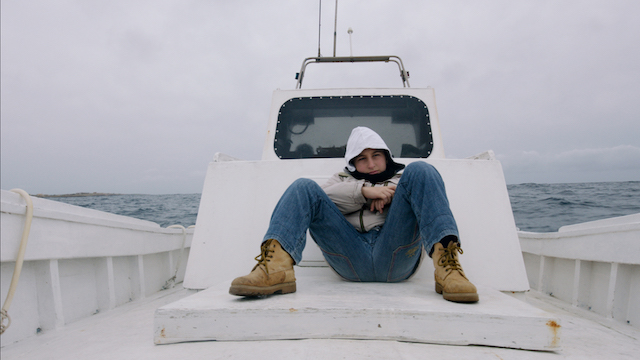‘Fire at Sea’ Call it perfect, or imperfect, timing: The world has finally made the migrant crisis a trendable topic. And lo and behold, right on cue, here’s Gianfranco Rosi’s “Fire at Sea,” a documentary that explores the Mediterranean island of Lampedusa. Only eating up 20 square miles, it’s become a hotspot for fleeing refugees, who swing by the island en route to Europe, sometimes to file their way into a bureaucratic nightmare, other times to drown in unforgiving waters. “Fire at Sea” contains nightmarish footage of unspeakable misery. But it’s not the straight-arrow film human rights activists most desire. It’s not an expository doc, where talking heads plead for our attention and our care. Rosi, as it happens, is a minimalist documentarian; one of his films, “El Sicario, Room 164,” spends 84 minutes in a single hotel room, hanging with a Mexican drug dealer with a bag over his head. Rosi’s films are observational, borderline experimental, the kind that make whatever points they make tacitly, through what they show, not what they say. And what his latest shows of the migrant experience only eats up 20 percent of Rosi’s film. The rest is a portrait of life on a tiny island that’s not tiny enough that its entire identity is defined by an issue that’s now hot-button. Indeed, the movie is largely devoted to a character study of Samuele, a young boy who scampers about like young boys do, especially when they grow up in far-flung places with next to no opportunities. Samuele knows little of the horrors that define his homeland. A boundless charmer, he mostly makes slingshots, rigs fireworks to cactuses, horses around. He gets seasick on boats, which is a shame considering fishing is the island’s top profession. RELATED: Interview: André Holland talks “Moonlight” and how we rarely see black people thinking onscreen Samuele isn’t the only local divorced from the neighboring horrors. We see his mother busying herself with home-making. Early on she’s in the kitchen, idly listening to radio reports about 250 migrants who perished in a sinking ship. She notes the terrible news, then carries on, waiting for the chipper DJ to play the song she recently requested. Tragedy might as well be 1,000 miles away. Only a doctor knows what’s up; we watch him as he looks over charts, noting the number of sickly immigrants who wind up in his hospital, asking how anyone, himself most of all, could ever get used to the sight of untold corpses. Is Rosi making a political point? Sort of. His movie is cryptic about its intentions, open to interpretation. One thing is clear: It’s not hectoring about how un-woke its characters are to the crisis around them. It can be tempting to read too much into his leapfrogging structure, which spends time soaking up local atmosphere, letting us know its people, then shifts the focus to the Boschian hellscape of rescue missions. They come from Libya by way of Nigeria, or from Somalia; they’re dehydrated, their emaciated bodies covered in burns. They comfort themselves by singing songs of their troubles; one includes a verse about how they had to drink urine to survive. Rosi bears witness to their suffering. But he also bears witness to the Lampedusians themselves, who are shown as people with lives and vigor, who can’t be reduced and exploited for a cause, no matter how noble. This is not journalism; filling in the details is for someone else. He sees Lampedusa as a metaphor, or more accurately as a microcosm of Europe’s way of ignoring a powder keg issue right at their door. But it’s also a real place, filled with real life.“Fire at Sea” has been reclaimed as an issue film, which isn’t a bad thing: Rosi wants you everyone to finally care about this subject, which had lurked under our noses, and still, for the most part, does. But his film might become something else: a rejoinder to well-meaning films that try to squash people’s humanity to make a point.
Director: Gianfranco Rosi
Genre: Documentary
Rating: NR
4 (out of 5) Globes
‘Fire at Sea’ is more a portrait than an issue doc about the migrant crisis

Kino Lorber
Follow Matt Prigge on Twitter @mattprigge


















